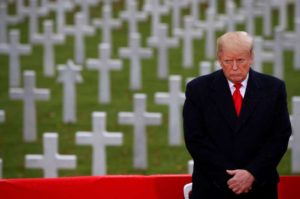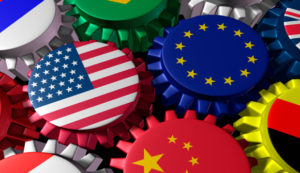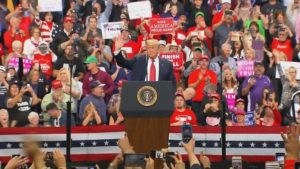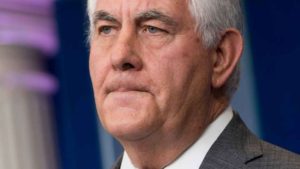I won’t be so glib to presume that a leading head of state’s comments got skewed in sits translation into English.
Still, I have to wonder if French President Emmanuel Macron really means it when he says “nationalism is a betrayal of patriotism.”
“By saying our interests first … we erase what a nation holds dearest, what gives it life, what gives it grace and what is essential: its moral values.”
So said the French head of state.
Don’t get me wrong. I do not subscribe to the nationalist view expressed by Donald John Trump, which apparently was the target of Macron’s comments this weekend in Paris. I fear that Trump’s “nationalism” translates to “isolationism,” which history has shown to be a dangerous posture to assume. It’s particularly perilous in this age of a shrinking world.
However, I do have a bit of trouble diminishing one’s patriotism because he or she wants to put his or her own nation’s interests first. Still, the president’s view that we should punish other nations because he — or we — don’t like their behavior can lead us directly into a more isolated position.
Trump has done that with his fiery rhetoric and his scolding of allies with whom this nation owes much. For the president to be so harsh in his view of France, for instance, ignores the nation’s longstanding historic ties to that country. The French stood with us at the beginning of our Republic, helping us win our independence from British tyranny. They stood with us through two world wars and have died alongside our own fighting men and women in places like Iraq and Afghanistan.
So, perhaps President Macron’s own salvo against nationalism and his assertion that it’s a “betrayal of patriotism” is his reaction to what he perceives as mistreatment from his own country’s oldest and most reliable ally.




